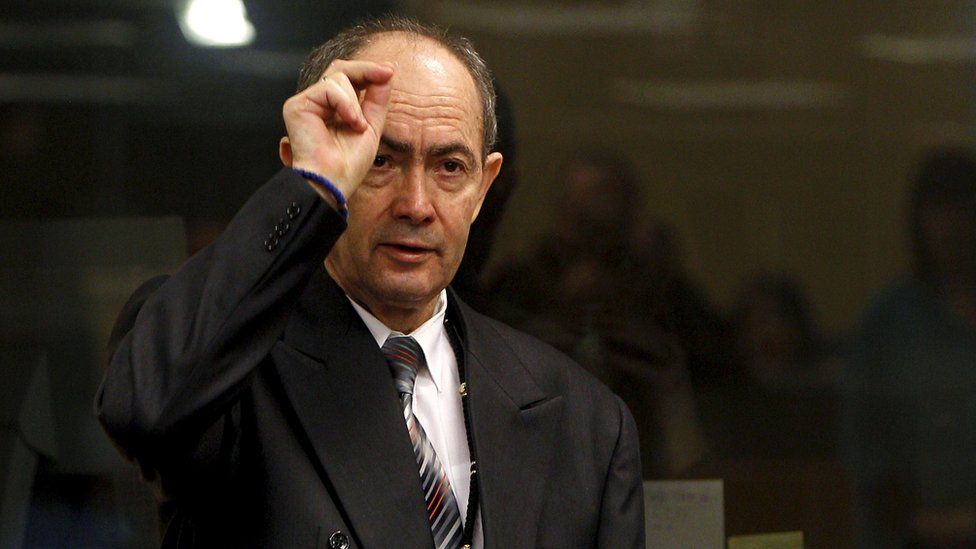Bosnian Serb general Tolimir dies in jail in The Hague
- Published

A Bosnian Serb general, described as commander Ratko Mladic's right-hand man during the Bosnia war, has died in custody in The Hague.
Officials said he had died on Monday night at the war crimes tribunal's detention facility in Scheveningen.
Gen Zdravko Tolimir, 67, was given a life term in jail for genocide by UN judges in 2012.
The tribunal rejected an appeal last year, citing his role in the 1995 Srebrenica massacre.
About 8,000 Bosniak men and boys were murdered at Srebrenica in the worst massacre of civilians on European soil since World War Two.
Gen Mladic is also on trial at The Hague, accused of genocide, war crimes and crimes against humanity. A verdict is expected next month.
What happened at Srebrenica? Explained in under two minutes
Another Bosnian Serb leader, Radovan Karadzic, is being held at The Hague on charges of genocide and crimes against humanity.
In a statement, the International Criminal Tribunal for the former Yugoslavia said Tolimir had passed away in the UN Detention Unit.
"The Medical Officer was called immediately and the Dutch authorities have commenced standard investigations as mandated under Dutch national law," it said.
It is thought he died in his prison cell, although the cause of his death was unclear.
"He was ill, but the idiots did not allow him to come here and get treatment at home," Tolimir's wife, Nada, told Serbian newspaper Kurir. She had been planning to visit him in jail soon and was told the news late on Monday night.
Tolimir had been waiting to be transferred to a jail in another country to serve out his sentence, officials said.
Almost 10 years ago, Serbia's ex-President, Slobodan Milosevic, was also found dead in his cell. He had suffered a heart attack.
Although part of a larger Dutch jail, the UN says its detention facility is a remand centre rather than a prison. Anyone detained there is held in a cell for 12 hours a day.
- Published8 April 2015
- Published12 December 2012
- Published9 February 2016